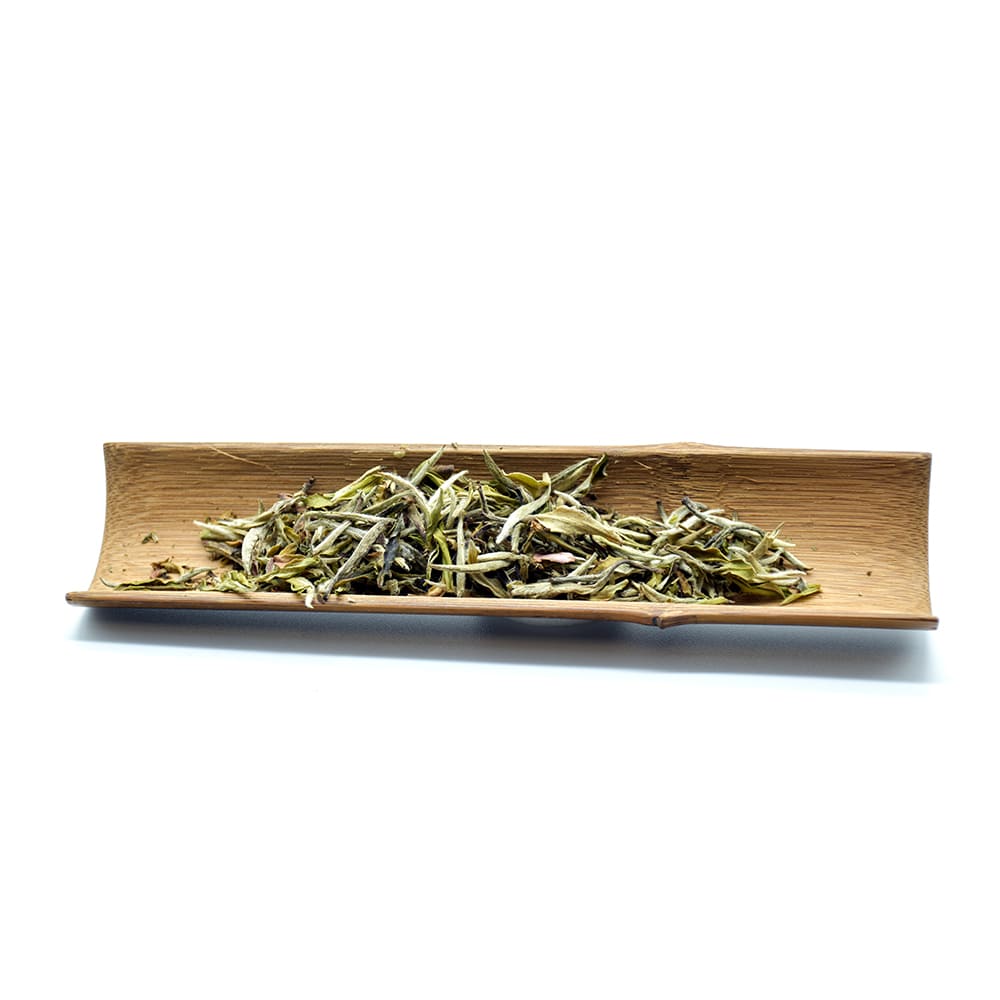Unlike its green and black counterparts, white tea is still relatively unknown in the West. This does not mean, however, that it lacks incredible benefits for our well-being (not to mention its truly exclusive flavour that will captivate you from the very first sip).
This tea owes its name to the fact that only the youngest buds are selected for its production, still covered with a silvery-white fuzz. After harvesting, the leaves are left to wither in the open air, undergoing partial spontaneous oxidation.
Properties of White Tea
White tea shares many characteristics with green tea. It contains iron, magnesium, potassium, sodium, zinc, and numerous vitamins from groups C and B (Thiamine, Riboflavin, Niacin, B6). Additionally, it provides proteins and a moderate amount of caffeine (200 ml, or one cup, contains an average of 30 mg of caffeine).
Health Benefits of White Tea
White tea is particularly refined and has high nutritional value. It is extremely rich in polyphenols, antioxidant substances that have anti-tumour and anti-ageing properties. They protect the cardiovascular system and the brain (thereby reducing the risk of dementia). Further preventive effects extend to the skin, bones, and teeth.
The presence of caffeine, theophylline, and theobromine (the so-called methylxanthines) helps to accelerate fat metabolism and promote weight loss.
Does White Tea Have Contraindications?
The caffeine in white tea does boost metabolism, but one should be careful not to overconsume it. Side effects could include anxiety and nervousness.
Can White Tea Be Consumed During Pregnancy?
White tea does not have particular contraindications during pregnancy. On the contrary, it is rich in antioxidants and other beneficial substances for both mother and baby.
As always, it is important not to overdo it due to the presence of caffeine. One or two good cups of white tea are perfectly acceptable!

